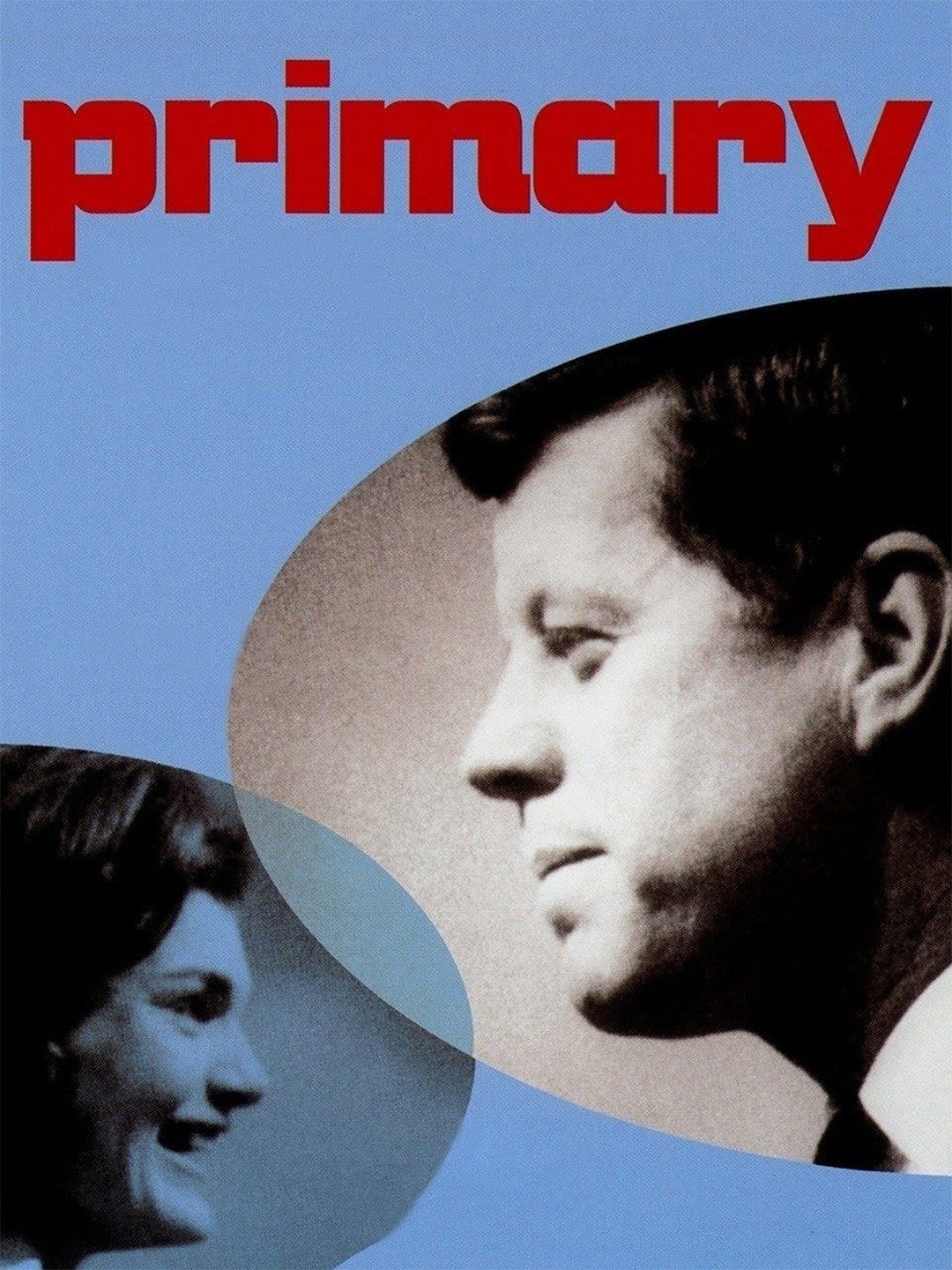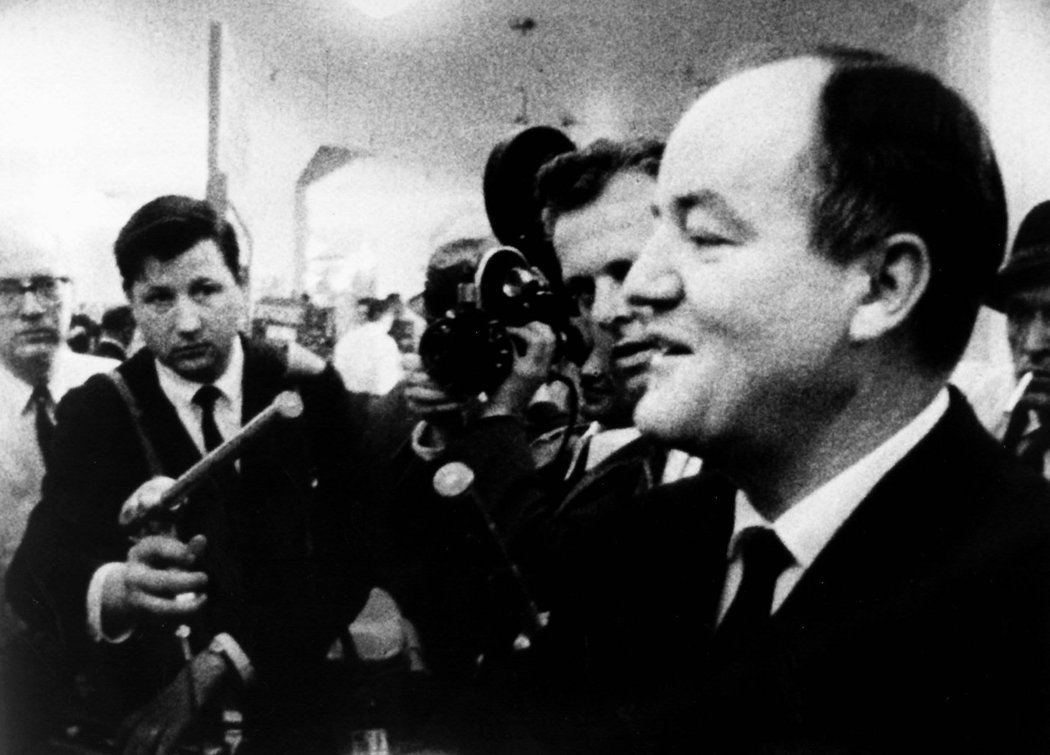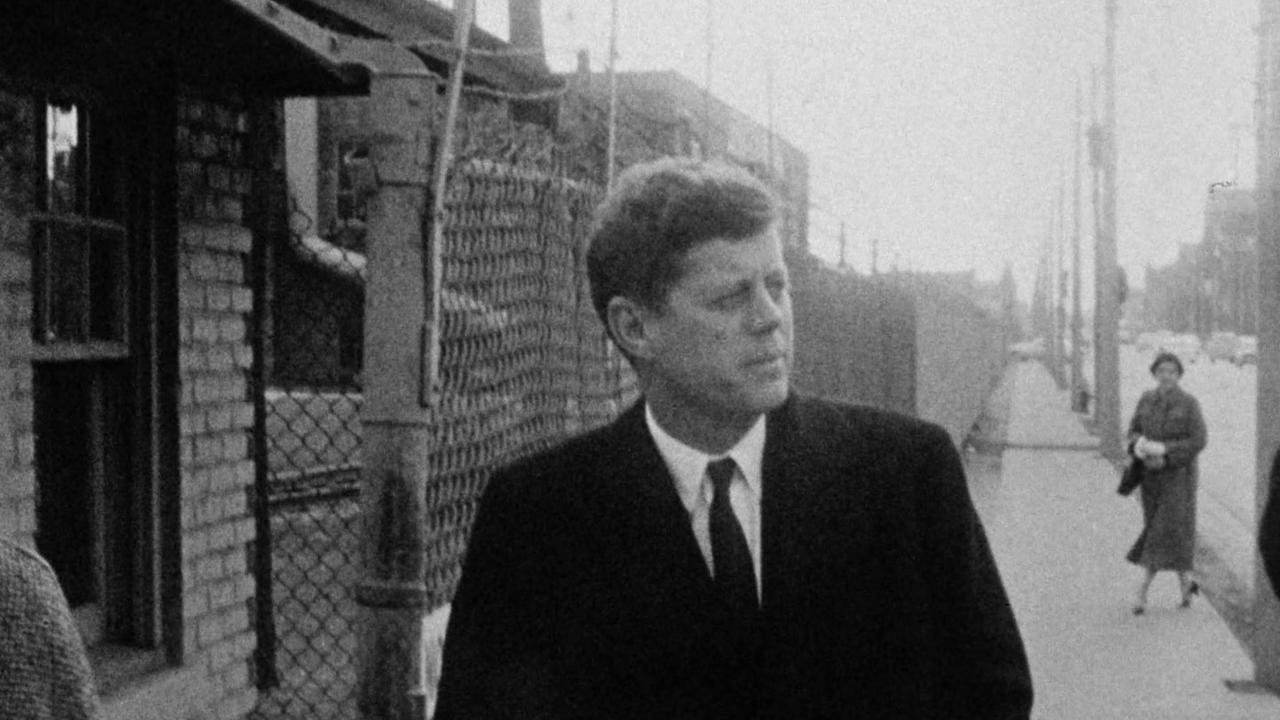A POLITICAL SEASON: Occasional 2024 series on politics in movies PRIMARY (1960, wri & produced by Robert Drew, 60mns, USA)
When technology changes, the form changes. A great example is 1960's epochal documentary PRIMARY.
Lighter cameras, more responsive film stock to low light, better sound equipment allowed the multiple camera people on the shoot (including future doc luminaries D.A. Pennebaker, Richard Leacock, Albert Maysles) to handhold their cameras and sound gear. This allowed the moviemakers the ability to follow candidates through huge crowds, into hotel rooms, into car caravans, into smoky offices, etc.
Prior, documentaries had to navigate bulky heavy equipment which often lead to choices that were more pre-mediated, designed, stagey, static.
PRIMARY established the documentary form that is STILL a basic template today. Though in 2024, we are in another technological seismic shift as phone cameras with microphones serve as a new tool that can capture documentary like moments anywhere from a few seconds to a whole feature length clip of footage. At the same time, the ability to manipulate or distort said footage is the easiest it has ever been. Meaning now discerning folks have to question whether purported "doc" footage is really that or just doctored, staged artifice of a different kind.
At its core, 1960's PRIMARY is a window into retail US presidential politics. We know the outcome of course (John F. Kennedy would go on to win the presidency in 1960). But it's still fascinating to see how Senator Humphrey has a feel for the farmer, the working class voter, the rural voter. And how Senator Kennedy electrifies the urban vote, the Catholic vote, the young vote.
The doc captures scenes fit to bulging with subtext for those who like their documentaries with a healthy helping of irony. Humphrey, for all his affability and clear political skill (he would go on to become Vice President under President Johnson in the mid-60's), doesn't have the TV ready handsome looks and charisma that Kennedy clearly has.
In fact, many folks call the 1960 election, the first real "TV President" election. Republican nominee Richard Nixon did NOT come across well on television and suffered in the debates later that year because of it. Kennedy, on the other hand, seemed to understand his assets and the television medium, and played to it.
You can see glimpses of that in PRIMARY.
PRIMARY also is a window into a kind of politics that would be unheard of today. A scene of Senator Humphrey standing on a street corner handing out cards to random passers-by and asking for their vote seems like it takes place on an alien planet.
Another kind of irony occurs in the scenes of Kennedy, his wife Jacqueline, and his brother Robert at a large indoor auditorium rally. They all smile, joke, shake hands, and stand patiently as the audience sings a campaign song to Kennedy and his family. But the irony here of course is of a tragic kind. We know that within 3 years of this documentary, JFK will be assassinated in front of his wife. 5 years later, Bobby Kennedy will be assassinated. And Jackie will have to live the rest of her life under the microscope of celebrity media like the future Princess Diana. Knowledge of the future brings a melancholic mood to the happiness of the proceedings here.
PRIMARY also does a brilliant job at finding moments where the candidates let their guard down so you get a glimpse of their more calculating side. A scene prior to a question answering TV show reveals Hubert Humphrey's controlling stage managing tendencies even with his wife. A scene of Kennedy nervously smoking in a hotel room as the results come in primary night shows the politician's concern and uncertainty. Kennedy put it all on the line during the primary by saying Wisconsin was a "must win".
As time passes, these documentaries become almost more important as time capsules of faces, fashions, cultural norms of a period that now is an era that has truly passed. But they also show us what a grind democracy is. These candidates are trying to win EVERY winnable vote. And that means long days, numerous events per day, numerous trips by bus or car around the state, numerous speeches saying the same thing. And still, within that grind, working to find a way to excite, connect, and engage a diverse working population into a coalition to win. And all of this for just ONE STATE.
You do get a sense, however incomplete, that a U.S. presidential campaign is a kind of inconceivable ultra-marathon for which almost nobody is truly prepared.
Craig Hammill is the founder.programmer of Secret Movie Club.




